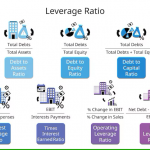In today’s fast-paced and competitive business landscape, going public through an initial public offering (IPO) has long been seen as the ultimate milestone for startups and unicorns. However, an intriguing trend has emerged where some of the most highly valued privately held companies choose to remain private. What makes these unicorns opt for staying private and continuing to pursue growth away from the scrutiny of public markets? Find out in this article as we delve into the appeal of avoiding an IPO.
While IPOs have traditionally been a symbol of success and a way for companies to raise capital, the decision to stay private is not without its merits. Privacy, flexibility, and control are just a few of the benefits that lure some unicorns away from Wall Street. By staying private, companies can avoid the regulatory burden, short-term pressure for quarterly earnings, and unwanted interference from activist shareholders. Moreover, the allure of being able to focus on long-term strategies and experiment with new ideas without the constant pressure to meet market expectations can be a powerful motivator.
Join us as we explore the various reasons behind why some unicorns choose to forgo an IPO and discover the fascinating world of private, high-growth companies that are reshaping the landscape of business.
What is an IPO?
An initial public offering, or IPO, occurs when a privately held company offers its shares to the public for the first time. This process transforms the company from a private entity to a publicly traded one, allowing it to raise significant capital from investors. The IPO process typically involves extensive preparation, including auditing financial statements, preparing a prospectus, and meeting regulatory requirements set by authorities such as the Securities and Exchange Commission (SEC) in the United States. Once public, a company faces ongoing obligations to disclose financial performance and other material information to its shareholders.
The primary motivation for companies to go public is to raise capital for growth initiatives, such as expanding operations, investing in research and development, or paying off existing debt. An IPO can provide a significant influx of funds that enable a company to accelerate its growth trajectory, attract top talent, and increase brand visibility. Moreover, going public can enhance a company’s credibility, making it more appealing to potential partners and customers. Through an IPO, founders and early investors can also monetize their investments and gain liquidity, which can be a compelling factor.
However, the IPO process is not without its challenges. Companies must navigate complex regulatory frameworks, manage public expectations, and endure intense scrutiny from market analysts and investors. The timeline for an IPO can be lengthy, and companies may need to demonstrate consistent financial performance over several quarters before going public. As a result, some companies may reconsider the advantages and disadvantages of opting for an IPO and weigh them against the benefits of remaining private.
Reasons Why Companies Go Public
Companies typically pursue an IPO for various reasons, one of which is the need for capital. As businesses grow, they often face increased operational costs and the need for investment to sustain growth. By going public, these companies can tap into a broader pool of investors and secure the funding necessary for expansion. This influx of capital can be vital for companies looking to scale quickly or enter new markets, enabling them to compete effectively and capitalize on emerging opportunities.
Another reason companies choose to go public is to enhance their brand visibility and credibility. Publicly traded companies gain exposure through stock exchanges and financial news outlets, which can help build trust among customers, partners, and potential investors. This increased visibility can lead to new business opportunities and partnerships, as well as strengthen the company’s market position. It also allows businesses to attract top talent, as employees may be more inclined to join a publicly traded company with stock options as part of their compensation package.
Moreover, going public allows founders and early investors to realize the value of their investments. The IPO process provides a mechanism for them to sell shares and convert their equity into cash, providing liquidity that can be reinvested elsewhere or used for personal expenses. This financial exit can be particularly appealing for venture capitalists and angel investors who seek to recoup their investments and achieve returns on their capital. Ultimately, the decision to go public is influenced by various factors, including market conditions, company performance, and investor sentiment.
The Downsides of Going Public
Despite the allure of going public, there are several significant downsides that can make the decision less appealing for some companies. One of the most notable challenges is the regulatory compliance burden that comes with being a publicly traded entity. Companies must adhere to stringent reporting requirements, maintain transparency about their financial performance, and comply with various securities laws. This can require substantial resources and personnel, diverting attention from core business activities and potentially stifling innovation.
The pressure to meet short-term financial expectations is another downside of going public. Public companies are often scrutinized by analysts and investors who expect consistent growth and profitability. This pressure can lead management to prioritize short-term gains over long-term strategies, resulting in decisions that may not align with the company’s overall vision. Moreover, the focus on quarterly earnings can hinder a company’s ability to invest in research and development or pursue innovative projects, ultimately impacting its competitive edge.
Additionally, public companies are subject to the whims of the market and investor sentiment. Stock prices can be influenced by factors beyond a company’s control, such as economic downturns or shifts in consumer preferences. This volatility can lead to instability and uncertainty, making it difficult for management to navigate strategic decisions. Furthermore, the presence of activist shareholders can complicate matters, as these investors may push for changes that prioritize immediate financial performance over the company’s long-term health and growth potential.
The Rise of Private Funding and Unicorn Companies
In recent years, there has been a notable rise in private funding, leading to the emergence of unicorn companies—startups valued at over $1 billion. This trend is indicative of a changing landscape where private equity and venture capital firms are willing to invest substantial amounts in high-growth companies without the need for them to go public. The influx of private capital allows these unicorns to scale rapidly while maintaining control and flexibility over their operations.
The availability of private funding has significantly altered the traditional path of startups, enabling them to grow without the pressures associated with public markets. Unicorns can pursue ambitious growth strategies, invest in product development, and expand their market presence without the constant scrutiny of public investors. This shift has led many successful companies to explore alternative funding options, such as private equity, venture capital, and debt financing, allowing them to raise the necessary capital while preserving their independence.
Moreover, the rise of private funding has facilitated a new breed of high-growth companies that prioritize long-term vision over short-term performance. Many unicorns have embraced this model, focusing on building sustainable businesses that can withstand market fluctuations and adapt to changing consumer demands. By choosing to remain private, these companies can prioritize innovation and experimentation, ultimately driving growth and creating value for their stakeholders.
Advantages of Staying Private for Unicorns
Staying private offers several advantages that appeal to unicorn companies, one of which is the preservation of privacy. In the public market, companies are required to disclose extensive financial information and operational metrics, which can provide competitors with valuable insights. By remaining private, unicorns can maintain a level of confidentiality around their strategies, financial performance, and future plans, allowing them to operate without the fear of competitive intelligence.
Flexibility is another significant benefit of staying private. Private companies are not bound by the same regulatory requirements as public ones, allowing them to make decisions more swiftly and adapt to changing market conditions without the constraints of public oversight. This agility enables unicorns to innovate and pivot as needed, fostering an environment where creativity and experimentation can thrive. They can invest in long-term projects without the pressure to demonstrate immediate results to shareholders.
Additionally, control becomes a vital advantage for unicorns that choose to remain private. Founders and management teams retain greater decision-making authority without the interference of activist shareholders or the need to appease Wall Street. This autonomy allows them to prioritize the company’s vision and values, aligning their strategies with their long-term goals. By staying private, unicorns can create a corporate culture that fosters innovation, collaboration, and a focus on sustainable growth rather than short-term gains.
Challenges Faced by Unicorns That Choose to Stay Private
While there are numerous advantages to remaining private, unicorn companies also face unique challenges that can impact their growth trajectory. One of the primary challenges is the limited access to capital compared to publicly traded companies. While private funding options exist, they may not always provide the same level of liquidity and financial resources as an IPO. This limitation can hinder a unicorn’s ability to scale rapidly or seize new market opportunities, particularly in fast-moving industries.
Another challenge is the potential for decreased visibility and brand recognition. Public companies benefit from exposure to a broader audience through stock exchanges and financial news outlets, which can enhance their credibility and attract new customers. In contrast, private unicorns may struggle to achieve the same level of recognition, limiting their ability to compete effectively in crowded markets. This lack of visibility can also make it more challenging to attract top talent, as job seekers may gravitate toward publicly traded companies with established reputations.
Furthermore, unicorns that choose to stay private may face pressure from investors who expect returns on their investments. While private funding allows for greater flexibility, investors often seek liquidity options and may push for a public offering or acquisition to realize their returns. This pressure can create tension between founders and investors, particularly if the company’s long-term vision doesn’t align with the investors’ desire for immediate financial gains. Navigating these dynamics requires careful communication and strategic planning to ensure that all stakeholders’ interests are taken into account.
Case Studies of Successful Private Unicorns
To illustrate the advantages of staying private, we can look at successful unicorns like SpaceX and Stripe. SpaceX, founded by Elon Musk, has achieved remarkable milestones in the aerospace industry while remaining privately held. The company’s focus on innovation, long-term vision, and the ability to experiment without the constraints of public market expectations have allowed it to revolutionize space travel and launch commercial satellites. By avoiding the pressures of an IPO, SpaceX has been able to prioritize its ambitious goals, including missions to Mars and the development of the Starship spacecraft.
Similarly, Stripe, a fintech company founded by brothers Patrick and John Collison, has become a leader in online payment processing while remaining private. The company’s ability to innovate and respond to customer needs without the scrutiny of public investors has enabled it to build a robust platform that powers millions of businesses worldwide. Stripe’s focus on long-term growth and customer satisfaction has allowed it to expand its offerings and establish itself as a key player in the financial technology space, all while maintaining the flexibility that comes with being privately held.
These case studies exemplify the potential for unicorns to thrive without going public. By prioritizing innovation, long-term strategies, and a commitment to their vision, these companies have proven that success can be achieved outside the confines of the public market. Their journeys serve as a testament to the benefits of remaining private while navigating the challenges that come with it.
Alternative Options for Funding and Growth
For unicorns that choose to stay private, alternative funding options are available that can support growth without the pressures of going public. One such option is venture capital, where firms provide funding in exchange for equity stakes in the company. This type of investment allows companies to access significant capital while retaining control over their operations. Additionally, venture capitalists often bring valuable expertise and networks that can help propel a unicorn’s growth trajectory.
Private equity is another avenue for funding, where investment firms acquire stakes in companies to drive operational improvements and enhance value. This form of investment may provide unicorns with the resources needed to scale while offering strategic guidance and support. Unlike public markets, where companies must navigate the complexities of shareholder expectations, private equity firms can take a long-term view, allowing unicorns to focus on sustainable growth and innovation.
Debt financing is also an option for unicorns that wish to maintain their private status. By securing loans or credit lines, these companies can access capital without diluting equity or relinquishing control. This approach allows unicorns to manage their financial obligations while pursuing growth initiatives and investment opportunities. By exploring these alternative funding avenues, private unicorns can continue to thrive and expand their operations while avoiding the pressures associated with going public.
Conclusion: The Future of Unicorn Companies and IPOs
As the business landscape continues to evolve, the trend of unicorns choosing to remain private is likely to persist. The advantages of privacy, flexibility, and control make staying private an appealing option for many high-growth companies. While going public can offer access to capital and increased visibility, the challenges associated with regulatory compliance, short-term pressures, and market volatility can deter some companies from pursuing an IPO.
The rise of private funding sources, such as venture capital and private equity, has provided unicorns with the resources needed to scale and innovate without the constraints of public markets. As these companies continue to thrive in a rapidly changing environment, they will likely seek alternative funding options that allow them to maintain their independence while pursuing their long-term visions.
In conclusion, the decision to stay private is not merely a trend but a strategic choice that reflects the values and goals of unicorn companies. By prioritizing innovation, long-term growth, and operational flexibility, these companies are reshaping the business landscape and demonstrating that success can be achieved outside the traditional path of going public. As we move forward, it will be fascinating to see how these unicorns navigate the challenges and opportunities that lie ahead in their pursuit of growth and success.






